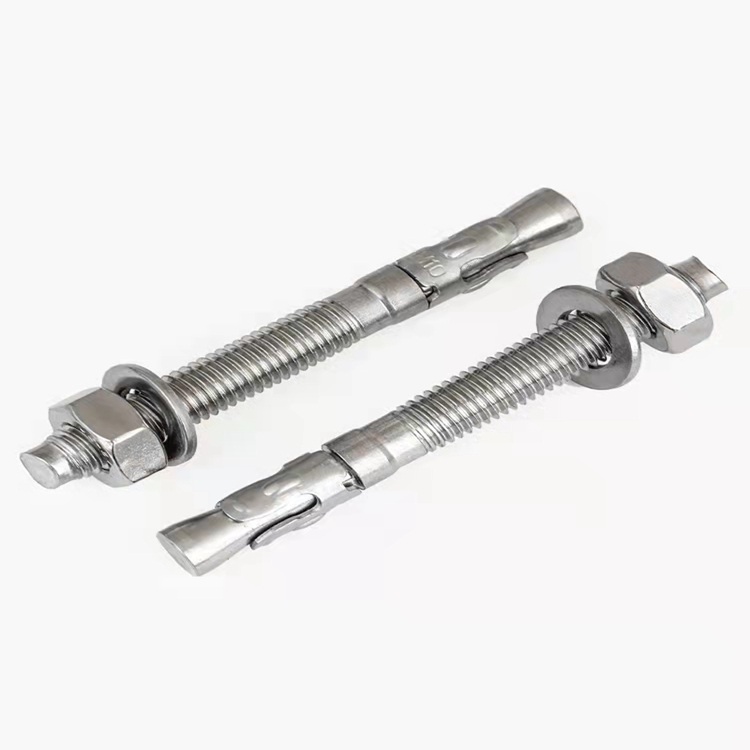drill bolts
Dic . 01, 2024 14:01 Back to list
drill bolts
Understanding Drill Bolts A Comprehensive Overview
In the realm of construction and engineering, the term 'drill bolts' often comes up as a crucial component in various applications. As industries continue to evolve, understanding the specifics and functionalities of these fasteners becomes increasingly important. In this article, we delve into the characteristics, types, applications, and installation practices for drill bolts, providing a comprehensive overview for professionals and enthusiasts alike.
What Are Drill Bolts?
Drill bolts, also known as drill-through bolts, are specialized fasteners designed to facilitate the joining of materials in a robust and efficient manner. Used predominantly in heavy-duty applications, these bolts have unique features that make them suitable for creating strong, reliable connections between structural components. Their design typically includes a drill point that allows the bolt to penetrate the materials being joined, eliminating the need for pre-drilled holes. This not only saves time during installation but also enhances the structural integrity of the assembly.
Characteristics of Drill Bolts
The most distinctive characteristic of drill bolts is their self-drilling capability. The drill point is engineered to cut through metal and other materials easily, often creating its own pilot hole in the process. This reduces the need for additional tools and steps in the fastening process. Drill bolts are available in various sizes and materials, including steel and stainless steel, to accommodate different requirements and environmental conditions.
Another important feature is the thread design. Most drill bolts are equipped with coarse threads that provide a strong grip, ensuring the bolt remains securely fastened even under stress. The shank of the bolt is also robust, designed to withstand significant loads, making them ideal for applications in construction, manufacturing, and maintenance fields.
Types of Drill Bolts
There are several types of drill bolts available, tailored for different applications
1. Self-Drilling Screws These screws cut through the material they are being fastened into, functioning as both a screw and a drill. They are perfect for sheet metal and are often used in metal construction projects.
2. Tek Screws A proprietary type of self-drilling fastener, Tek screws are known for their superior drilling capabilities and are widely used in the roofing and siding industries.
3. Carriage Bolts While traditionally used for wood, specifically designed carriage bolts can also serve as drill bolts in more robust applications where a flush finish is necessary.
4. Lag Bolts Typically used in wood applications, certain lag bolts are designed to drill their pilot holes, making them versatile for various projects requiring heavy-duty fastening.
drill bolts

Applications of Drill Bolts
Drill bolts find applications across a wide range of industries. In the construction sector, they are extensively used for steel and metal framing, roofing, and even heavy machinery assembly. Their ability to drill and fasten simultaneously makes them preferred choices for quick-install projects.
In the automotive industry, drill bolts are employed in assembling components where strength and vibration resistance are paramount. They are also used in manufacturing processes where time efficiency and structural integrity are essential.
Moreover, drill bolts are utilized in HVAC systems, electrical installations, and plumbing projects, showcasing their versatility in both residential and commercial applications.
Installation Practices
While drill bolts simplify the fastening process, installing them correctly is crucial for ensuring optimal performance. Here are some best practices
1. Selecting the Correct Bolt Choose a drill bolt suitable for the materials being joined and the load requirements of the application.
2. Proper Alignment Ensure that the materials are aligned properly before installation to achieve a secure fit.
3. Using the Right Tools Utilize electric or cordless drills equipped with the appropriate bit to drive the drill bolts effectively.
4. Torque Specifications Maintain the specified torque settings to prevent over-tightening, which can lead to material damage or bolt failure.
Conclusion
Drill bolts are indispensable components in modern construction and manufacturing. Their innovative design and ability to streamline the fastening process make them ideal for a variety of heavy-duty applications. By understanding their characteristics, types, and correct installation methods, professionals can leverage drill bolts to enhance both efficiency and structural integrity in their projects. As industries continue to grow and advance, the role of drill bolts will undoubtedly remain significant, paving the way for better and more efficient construction practices.
Latest news
-
Durable Bolts for Lawn Mower Handle - Top Supplier & Manufacturer
NewsAug.22,2025
-
High-Quality Bolts for Lawn Mower Handle Supplier & Manufacturer
NewsAug.21,2025
-
Reliable Axle Nuts Supplier | High-Quality Automotive Parts
NewsAug.19,2025
-
Premium Wire Bolts Suppliers | Durable & Reliable Fasteners
NewsAug.18,2025
-
Leading Metric Wood Screw Companies & Manufacturers
NewsAug.17,2025
-
Top Wire Bolts Suppliers - Quality & Durable Fasteners
NewsAug.15,2025
